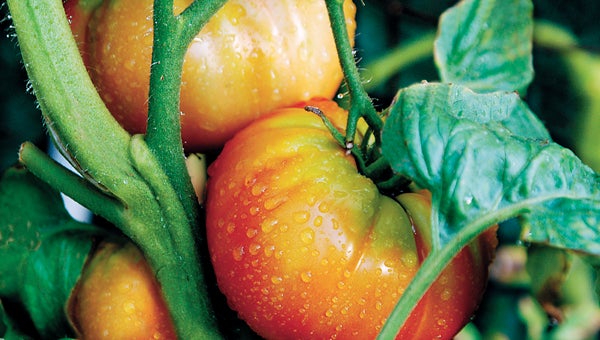Tomato treasures
Published 9:30 pm Tuesday, August 21, 2012

Americans eat 22-24 pounds of tomatoes apiece every year, making them the fourth most popular fresh-market vegetable behind potatoes, lettuce, and onions, according to the U.S. Department of Agriculture.
Heirloom varieties promise hearty flavors
Heirloom tomato varieties are treasures from the past. Chosen for outstanding flavor, color, or overall performance, they can be grown in your garden, but probably never found in a supermarket.
With the change in trends of food production after World War II, there came a need to develop tomatoes that could be harvested green, withstand shipping and maintain a good, uniform appearance. Hybrids helped achieve these qualities, but flavor was sacrificed, and in recent years, scientists have been trying to re-introduce it to tomatoes.
Though hybridized tomatoes have their place, heirloom tomatoes surpass them in one general characteristic — their taste.
Here are some common heirloom tomato varieties you may want to try:
- Big Rainbow: This very large tomato is a gold/red bicolor, and is described as meaty and mild-flavored.
- Brandywine: This large beefsteak variety tomato is legendary for its “exceptionally rich, succulent flavor” and “old-fashioned tomato taste.” An Amish heirloom, it is solid pink-red.
- Black Krim: This Russian beefsteak variety is deep maroon red when ripe. It is a medium-sized tomato that has a rich flavor.
- Evergreen: When ripe, this juicy and flavorful tomato is green with yellow highlights.
- Green Zebra: This green and yellow tomato has “a sweet zingy flavor” and is “as sweet as an apple.” It is beautiful when served with yellow, red, orange and pink varieties.
- Stupice: This smallish Czechoslavakian tomato is great for northern climates, is early to ripen, and is very productive. It is a smooth red tomato with great flavor.
- Yellow Pear: This variety produces an endless supply of yellow, bite-sized, pear-shaped fruit that have a mild flavor.
Source: Virginia Cooperative Extension Service


